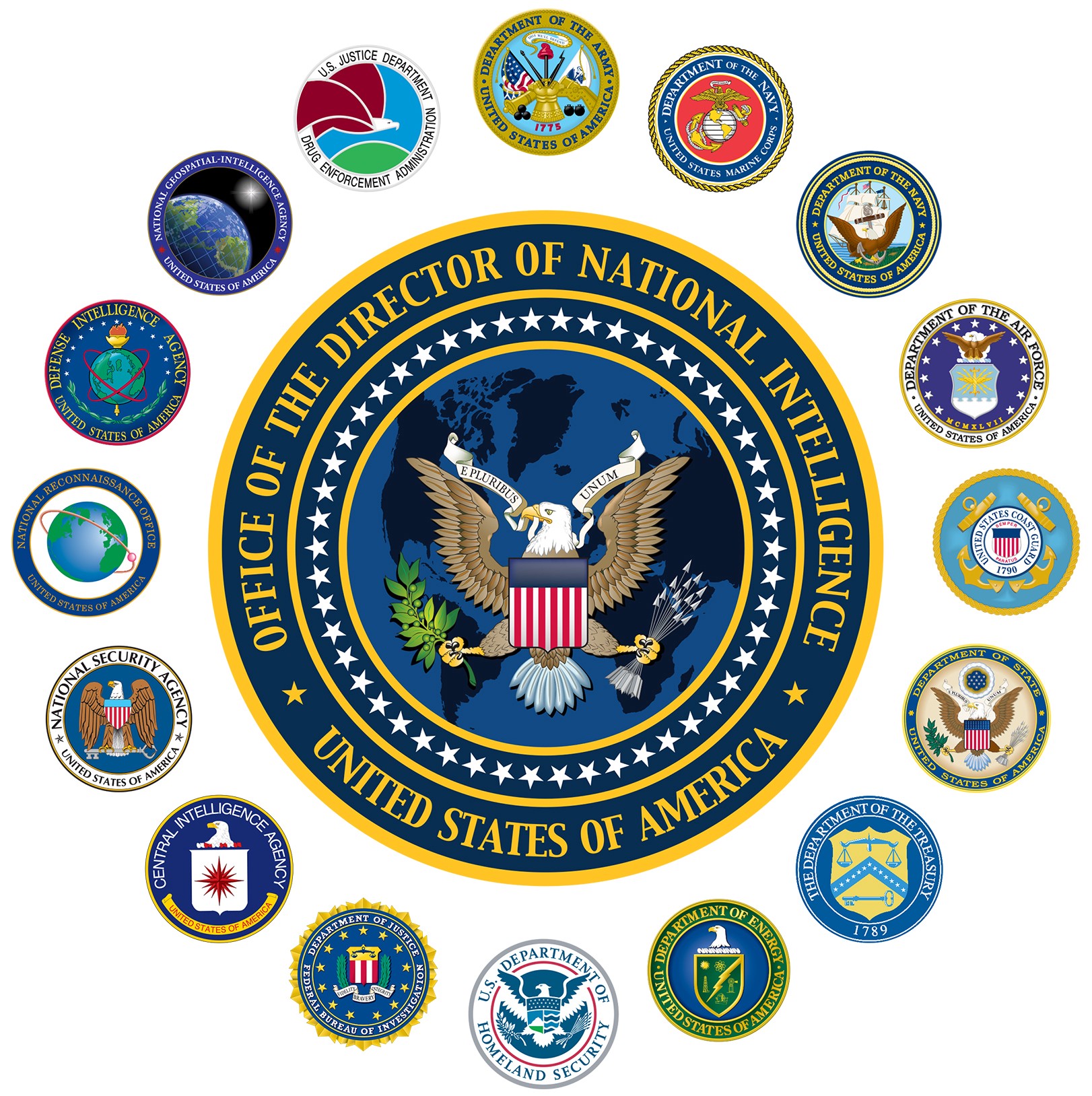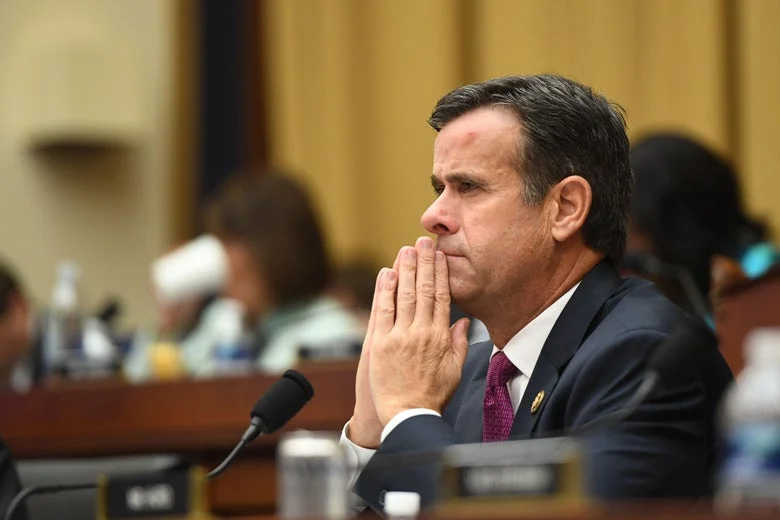The 'Deep State' Strikes Back By James Bruno
Speaking before a group of federal employees at America’s UN mission, President Trump recently made a veiled death threat against those who fed information to the anonymous whistleblower who exposed the president’s self-dealing on Ukraine. “You know what we used to do in the old days when we were smart with spies and treason, right? We used to handle it a little differently than we do now.”
Trump’s Corleone-esque turn of phrase left his audience cold. After all, any of them could be in his cross-hairs next. It was a chilling performance by a leader whose corruption and transactional patriotism are quickly catching up with him. But what Trump seems incapable of comprehending is that the public servants he has savaged over the past three years are, unlike him, not driven by revenge. They are there out of a devotion to American principles and the U.S. Constitution. As such, they provide an added check and balance on executive power. Only an amoral egocentric bombast who wallows in a fantasy world of conspiracy theories would fail to grasp that.
Photo by Saul Loeb/AFP
Rest assured, Trump and his allies are working feverishly to uncover the identity of the whistleblower, a member of the Trump-reviled “deep state” intelligence community. Once revealed, the official will come under a withering barrage from the GOP character assassination machine as others from the FBI have before him. Far-right activists have put out a $50,000 reward to anyone who reveals his identity, which, in turn, has sparked threats of violence against him. But another whistleblower has emerged in connection with Trump’s taxes; others may be in the wings.
Trump aide Stephen Miller told Fox’s Chris Wallace: “I know what the deep state looks like… This is a deep state operative pure and simple.” The very thought is laughable. Having spent twenty-five years as a federal government employee, I know of what I speak. Most people who enter government service are driven neither by money nor power, but by public service and patriotism. If they wanted money, they would have gone in the private sector. If they wanted power, they would have run for elected office. Rather than some secret anti-Trump fifth column inside the career bureaucracy, we are witnessing the constitutional autoimmune system at work.
As Congress, the courts, and news media get top billing as check-and-balance bulwarks against executive overreach, it is important not to overlook the institutional ballast that is the career government bureaucracy.
Photo by CIA
The unfolding of “Ukrainegate” gives us a glimpse of this quiet power:
When the president froze aid to Ukraine in August with no explanation and stonewalled his own government as to why, concerned government officials did an end run and enlisted Senate aides to try to force an explanation. Paramount to their concern was Ukraine’s ability to defend itself against Russian aggression.
White House staff confided to the whistleblower “that they were deeply concerned by what they viewed as Mr. Giuliani’s circumvention of national security decision-making processes to engage with Ukrainian officials and relay messages back and forth between” Kiev and the president.
The White House officials who told me this information were deeply disturbed by what had transpired in the phone call,” the whistleblower said in his complaint. “They had witnessed the president abuse his office for personal gain.” The whistleblower then stuck his neck out to file a complaint with the intel community’s inspector general.
His motivation? Former head of the National Whistleblower Center Kris Kolesnik summed it up, writing in the Hill, “Whenever the scandals broke, all the good guys in government with knowledge of the issue came out of the woodwork, and we found each other. We formed an investigative network to assist each other and root out the corruption.”
When nonpartisan “deep state” career professionals are excluded from investigations, the outcomes inevitably become suspect. When the Iran-Contra scandal broke open under Ronald Reagan, the White House initially requested personnel from the State Department and CIA to assist in the investigation. State tapped me to join that effort in late 1986. The day before I was to report for duty, however, the president’s team canceled their request, saying they preferred to keep the investigation “in-house.” Translation: they wanted anything but a full-throated honest inquest. To this day, Reagan’s and Vice President Bush’s foreknowledge of and decision-making in the scandal are not fully known, and the deception to protect them has been held up as an example of post-truth politics.
Photo by Bloomberg
Then, there are policy privateers like Rudolph Giuliani, who circumvent established channels and throw monkey wrenches into the delicate process of international diplomacy. A prime example is that of Armand Hammer, an American industrialist, son of Russian immigrants and long a darling of the Beltway power set. In his quixotic quest for a Nobel Prize, Hammer drew on his connections with Soviet leaders to insert himself into sensitive negotiations between Washington and Moscow to bring an end to the Soviet occupation of Afghanistan. At the time, I was serving as Afghanistan desk officer at the State Department. We in the diplomatic trenches regarded the aged diplomatic neophyte as both meddlesome and suspect. He merely added fog and confusion. Years after his death, the FBI determined that Hammer had been a KGB agent of influence for seven decades. It is already being revealed that Giuliani’s activities on Ukraine have served only to confuse that nation’s leaders and undercut official U.S. policy.
The unnamed intelligence officer who exposed Trump’s skullduggery deserves the American people’s praise and protection. And as more facts come to light, the pejorative fiction of a “deep state” needs to be discredited once and for all. With his presidency faltering, Trump must look in the mirror and realize that the fault lies not in the stars, but in himself.
James Bruno (@JamesLBruno) served as a diplomat with the U.S. State Department for 23 years and is currently a member of the Diplomatic Readiness Reserve. An author and journalist, Bruno has been featured on CNN, NBC’s Today Show, Fox News, Sirius XM Radio, The Washington Post, Christian Science Monitor, Huffington Post, and other national and international media.








